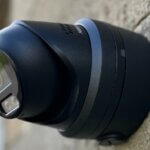Commercial CCTV York: What Every Employer Needs to Know
CCTV is now a familiar feature of UK businesses, from local shops to busy offices and large warehouses. It provides obvious benefits: deterring crime, protecting staff, and offering evidence when things go wrong. But it’s not just about pointing cameras in the right direction. If your system records people, the law says that footage counts as personal data.
That means your business has to comply with the Data Protection Act 2018 and the UK General Data Protection Regulation (UK GDPR). Failing to do so can lead to fines, complaints, and reputational harm.
The Legal Basics
When setting up CCTV, businesses must:
- Have a lawful purpose – CCTV should serve a specific reason, like crime prevention or staff safety. “Just in case” monitoring isn’t enough.
- Be transparent – Clear signage is essential. People must know cameras are in use and why.
- Respect privacy – Avoid recording in areas where privacy is expected, such as toilets or staff changing rooms.
- Limit retention – Recordings should be kept only as long as needed. A few weeks is common unless an incident requires longer storage.
- Protect the data – Footage must be stored securely, with access restricted to authorised staff.
- Respond to requests – People have the right to request access to footage of themselves, and businesses must provide it within one month.
- Assess higher-risk systems – If you’re using advanced technology like facial recognition or conducting large-scale monitoring, you may need to carry out a Data Protection Impact Assessment.
Best Practice for Business Owners
Beyond the legal basics, businesses can show they take privacy seriously by:
- Writing a clear CCTV policy and keeping it up to date.
- Training staff on the correct handling of recordings.
- Regularly reviewing whether cameras are still necessary in their current locations.
- Setting clear rules for how long footage is kept and ensuring it’s deleted on schedule.
Why Getting It Right Matters
CCTV can be a major asset for a business. It makes staff feel safer, reassures customers, and protects valuable property. But misuse can backfire. Poor practice risks breaching the Data Protection Act, facing fines, and damaging the trust that employees and customers place in your business.
Handled properly, CCTV shows that you value both security and responsibility. It’s not just about protecting premises — it’s about protecting people’s rights too.




